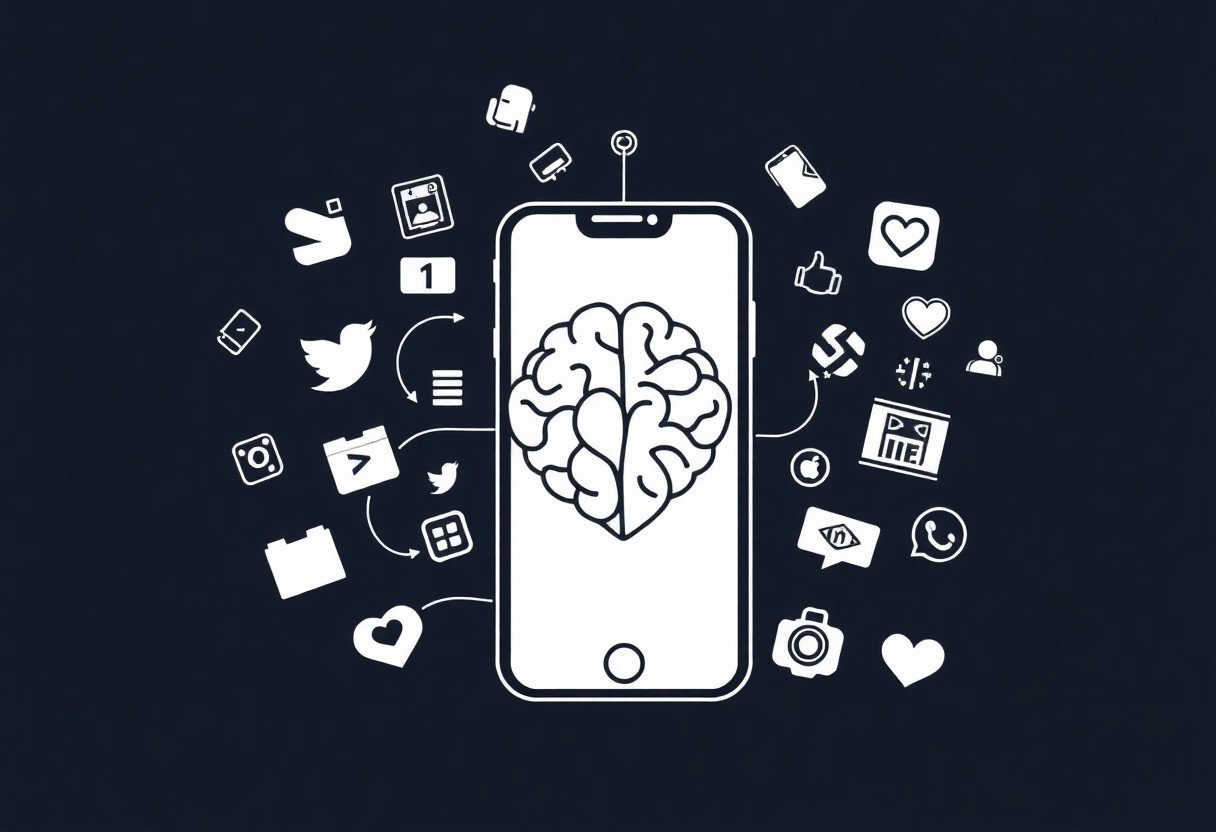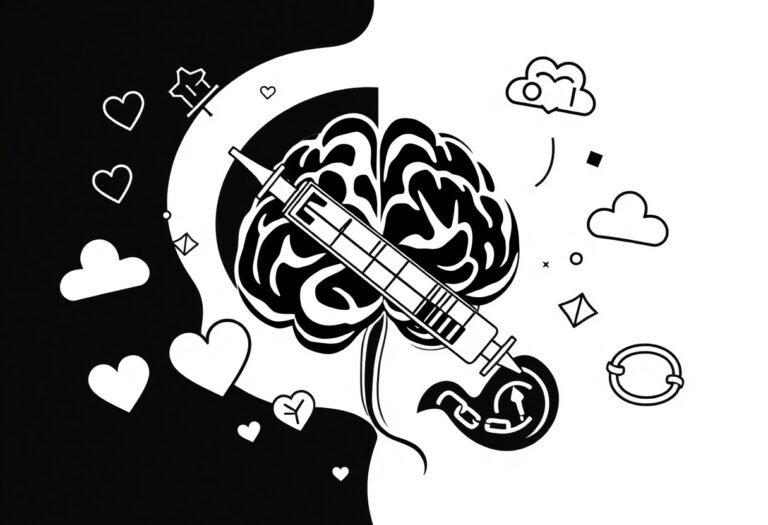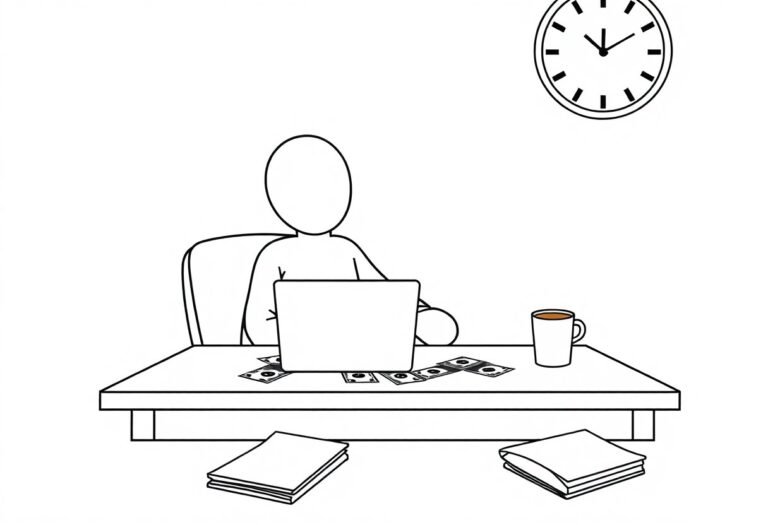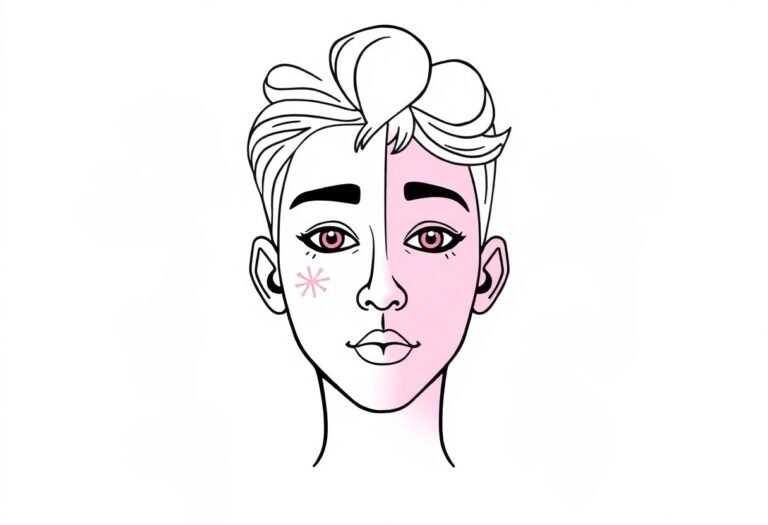The Role of Social Media in Mental Well-being
With the rise of digital connectivity, social media has become a significant part of your daily life, influencing your mental health in various ways. While platforms can provide supportive communities and access to helpful resources, they also may expose you to toxicity, comparison, and cyberbullying. Understanding the dual nature of social media is necessary for fostering a positive online experience that enhances your well-being. In this post, we will explore the impact of social media on mental health and offer strategies for navigating the digital landscape effectively.
Key Takeaways:
- Social media can foster connections and community, providing support networks that may enhance mental well-being.
- Excessive use of social media may lead to comparisons and feelings of inadequacy, impacting self-esteem and mental health.
- Mindful engagement with social media, such as curating content and setting usage limits, can promote a positive experience.
- Online communities can offer access to mental health resources and professional guidance, broadening support options for individuals.
- Awareness of the potential for cyberbullying and negative interactions is important in navigating social media for mental wellness.
The Impact of Social Media on Mental Health
Before plunging into the specifics, it’s imperative to recognize that social media can play a dual role in your mental health. While it has the potential to enhance well-being, it can also lead to challenges, especially when usage patterns shift. Understanding these dynamics can help you navigate social media more effectively.
Positive Effects
Media platforms often provide a sense of community and connection, allowing you to engage with friends and like-minded individuals. You can find support in groups dealing with similar issues, share your experiences, and gain access to valuable resources. Additionally, social media can empower you to express yourself creatively, ultimately boosting your self-esteem and fostering a sense of belonging.
Negative Effects
Media can also contribute to feelings of inadequacy and social anxiety. The constant comparison to influencers and peers often disrupts your self-image. You may experience pressure to present a curated version of your life, leading to stress and burnout. The addictive nature of social media can further exacerbate these feelings, making it challenging to take breaks and prioritize real-life connections.
Considering the negative implications, it’s vital to address how social media can distort your perception of reality. Frequent exposure to curated content can lead to unrealistic expectations and heightened feelings of loneliness. You might find yourself trapped in a cycle of comparison, which can negatively impact your self-esteem and overall mental well-being. It’s imperative to maintain a balanced perspective and establish healthy boundaries to mitigate these effects.
Social Media Usage Patterns
There’s a growing understanding of how your social media usage patterns can affect your mental well-being. The ways individuals engage with various platforms, whether it be posting updates, scrolling through feeds, or interacting with others, play a significant role in shaping your emotional landscape and sense of belonging.
Demographic Variations
Beside general trends, it’s crucial to consider how demographic variations can influence your social media experience. Age, gender, and cultural background often dictate the platforms you choose and how you interact with them. Understanding these differences can help you better comprehend your own engagement habits and their impact on your mental health.
Time Spent on Platforms
Platforms where you spend significant time can have varied effects on your mental well-being. If you find yourself spending too much time scrolling through feeds, it might lead to feelings of anxiety or depression due to constant comparisons with curated versions of others’ lives. On the other hand, moderate use can foster connections and support networks that contribute positively to your overall mental health.
Spent wisely, your time on social media can enhance your well-being. However, if you’re engaging excessively, it can result in diminished real-life interactions, promoting feelings of isolation and inadequacy. Balancing your time is key; utilizing tools such as screen time trackers can help you become more aware of your habits and help foster healthy interactions that promote a supportive community without the negative effects often associated with overuse.
The Role of Online Support Communities
All around the internet, online support communities have emerged as vital spaces for individuals seeking connection and understanding. These platforms enable you to share your experiences and find comfort in knowing you’re not alone in your struggles. In these communities, you can access a wealth of shared knowledge and emotional support, which is invaluable for fostering resilience and enhancing your mental well-being.
Benefits of Connection
To engage in online support communities presents numerous benefits, such as the opportunity for you to connect with others who share similar experiences. This sense of belonging can significantly boost your mood and help you navigate your mental health challenges with the support of a compassionate network. Furthermore, these interactions can lead to valuable insights and coping strategies that enrich your personal journey toward well-being.
Risks of Misinformation
Beside the advantages, it’s imperative to acknowledge the risks of misinformation prevalent in online support communities. While these platforms can provide support, they can also propagate inaccurate or misleading information regarding mental health treatments or conditions that may harm your well-being.
Considering the amount of information freely exchanged in these online spaces, you must be cautious. Misinformation can lead you to trust unverified treatments or adopt harmful practices that may worsen your mental health. Moreover, inaccurate narratives can contribute to stigma and misconceptions, potentially isolating you further. Always seek information from credible sources and consult with qualified professionals when addressing your mental health needs.
Strategies for Healthy Social Media Use
Not all social media experiences are beneficial; however, by implementing effective strategies, you can foster a healthier relationship with these platforms. Start by evaluating the time you spend online and curate your feed to include positive influences. Engage with content that enhances your mood and self-esteem, while avoiding negative or toxic interactions that may harm your mental well-being.
Setting Boundaries
After identifying your social media habits, it’s important to set boundaries to limit potential negative impacts. Designate specific times for social media use, reducing its interference with daily activities and personal time. Consider turning off notifications to prevent constant disruptions, helping you maintain focus and minimize stress.
Mindful Engagement
By engaging with social media mindfully, you can enhance your experience while safeguarding your mental health. Focus on the quality of your interactions instead of the quantity, allowing you to build genuine connections. Ensure your online activities align with your personal values and promote positivity in your life.
But while it’s important to connect, you should be wary of how much time you devote to social media. Excessive scrolling can lead to feelings of isolation and anxiety. Take pauses to assess how social media affects your mood; is it lifting you up or bringing you down? Prioritize interactions that are meaningful and supportive, while avoiding environments that trigger negativity or comparison. Your online space should be a source of inspiration and empowerment, not a cycle of stress.
The Influence of Social Media on Self-Esteem
Keep in mind that social media profoundly impacts your self-esteem, often in both positive and negative ways. As you navigate platforms filled with curated content, it’s vital to understand how these influences shape your perception of self-worth.
Comparison Culture
Comparison is an inherent aspect of social media, where you frequently evaluate your life against the highlights of others. This comparison culture can lead to feelings of inadequacy and lower self-esteem. Often, you might find yourself looking at others’ seemingly perfect lives and measuring your worth against them, which can be detrimental to your mental well-being.
| Negative Outcomes | Increased feelings of inadequacy, anxiety, and depression. |
| Positive Outcomes | Motivation to improve and better your own life. |
Validation and Feedback
Beside the challenges posed by comparison, the validation you seek from social media can significantly affect your self-esteem. You may find yourself relying on likes, comments, and shares to gauge your self-worth, leading to a cycle where your mood fluctuates based on online feedback.
To navigate this battlefield of validation, it’s important to acknowledge that while positive comments can uplift you, the absence of them or negative feedback can lead to feelings of rejection and disappointment. As you seek external validation, be mindful of its impact on your emotional health. Focusing on intrinsic motivation and cultivating your self-worth can help you break free from the limitations of social media feedback, allowing you to foster a healthier relationship with yourself.
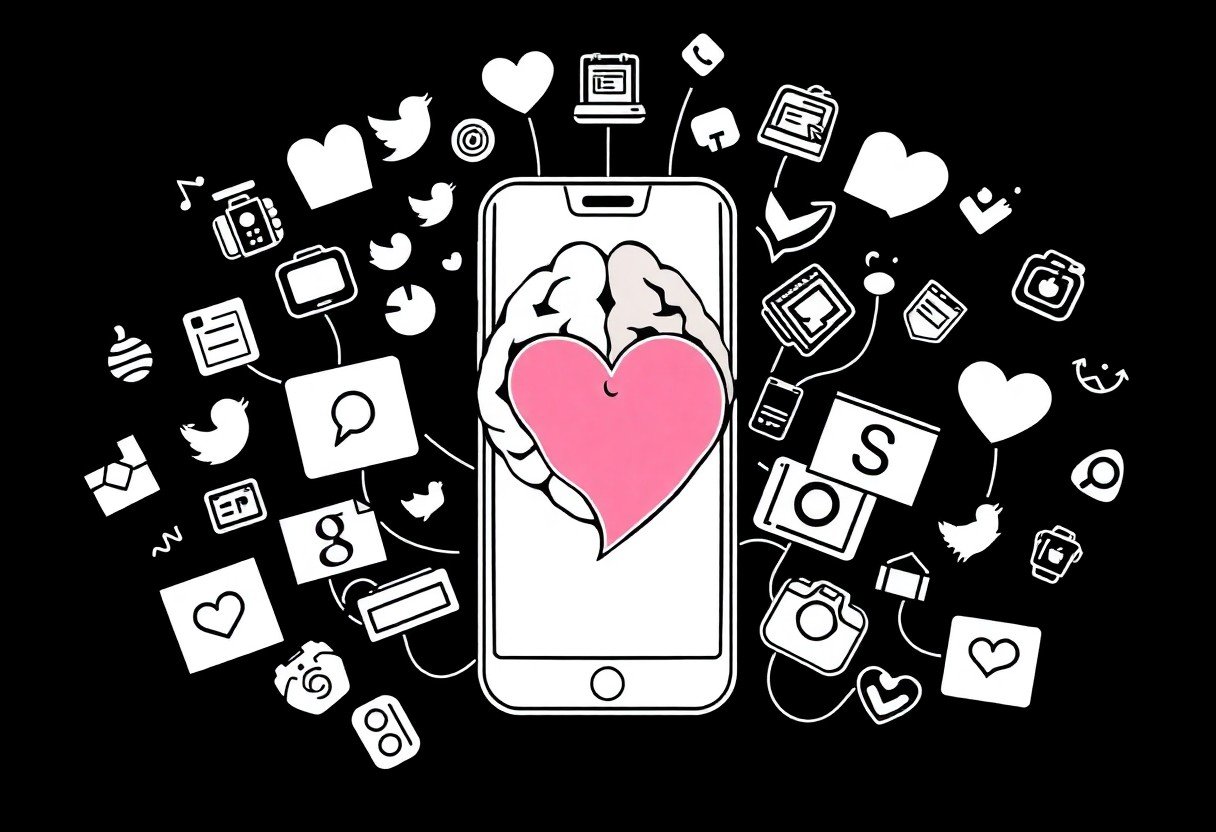
Future Trends in Social Media and Mental Health
Now, as social media continues to evolve, you can expect to see more platforms integrating features focused on mental health. These innovations may include in-app resources, preventive measures, and active community support, all designed to enhance your mental well-being while navigating online spaces. The future will likely emphasize a balanced approach, promoting healthy digital habits and better coping mechanisms.
Innovations in Support
At the forefront of social media’s impact on mental health are innovations in support systems. New technologies are being developed to offer personalized resources and mental health tips right within your social feed. This could include AI-driven chatbots, access to licensed professionals, or community-driven support groups aimed at tackling isolation and fostering connections.
Potential Challenges
Innovations in technology also bring about potential challenges for your mental well-being. As social media grows more integrated into our daily lives, the risk of addiction and oversharing increases. You may find yourself overwhelmed by constant notifications, leading to increased levels of stress or anxiety. Furthermore, the danger of misinformation regarding mental health can distort your understanding and diminish trust in genuinely helpful resources.
Media platforms that amplify your connection to others can simultaneously expose you to misinformation and unrealistic standards of mental health. This can create an environment where you feel pressured to present a facade of happiness or perfection. Additionally, the addictive nature of social media can lead to prolonged screen time, which may exacerbate feelings of isolation and depression. It’s necessary to navigate these complexities mindfully and prioritize your mental health needs amidst the digital landscape.
Summing up
The role of social media in mental well-being is multifaceted, affecting you in both positive and negative ways. While it can foster connections and provide support, excessive use may lead to feelings of isolation or anxiety. You should be mindful of how your online interactions shape your emotional state and take proactive steps to cultivate a healthy digital environment. Balancing your social media engagement can promote a more positive impact on your mental health, allowing you to benefit from its advantages while minimizing its drawbacks.
FAQ
Q: How can social media positively affect mental well-being?
A: Social media can enhance mental well-being by fostering connections and support networks. It allows individuals to share experiences, find communities with similar interests, and receive encouragement during difficult times. Additionally, social media can provide access to mental health resources and information, promoting awareness and reducing stigma around mental health issues.
Q: What are some negative impacts of social media on mental health?
A: While social media can have benefits, it can also lead to negative outcomes such as feelings of inadequacy, anxiety, or depression. The constant comparison to curated lives portrayed online may affect self-esteem. Furthermore, exposure to cyberbullying or toxic environments can exacerbate feelings of isolation and distress, which is why it’s important to be mindful of online interactions.
Q: How can individuals maintain a healthy relationship with social media?
A: To maintain a healthy relationship with social media, set boundaries around usage time and content consumption. Curate your feed by following accounts that promote positivity and mental well-being. Engage in digital detoxes, where you take breaks from social media to focus on offline activities that bring joy and fulfillment.
Q: What role does social media play in spreading mental health awareness?
A: Social media serves as a platform for spreading mental health awareness by enabling organizations and advocates to share valuable information, personal stories, and resources. Campaigns and hashtags can quickly raise attention to mental health topics, encouraging conversations and reducing stigma, which ultimately helps community understanding and support for those experiencing mental health challenges.
Q: Can social media be a tool for therapy and support?
A: Yes, social media can serve as a tool for therapy and support by providing access to online therapy options, mental health forums, and peer support groups. Many professionals and organizations utilize these platforms to offer advice, share coping strategies, and create safe spaces for individuals to discuss their mental health. However, it is vital to seek professional help from qualified individuals when needed.

